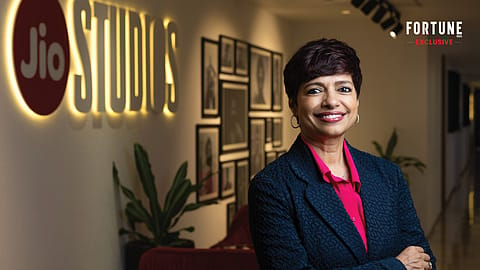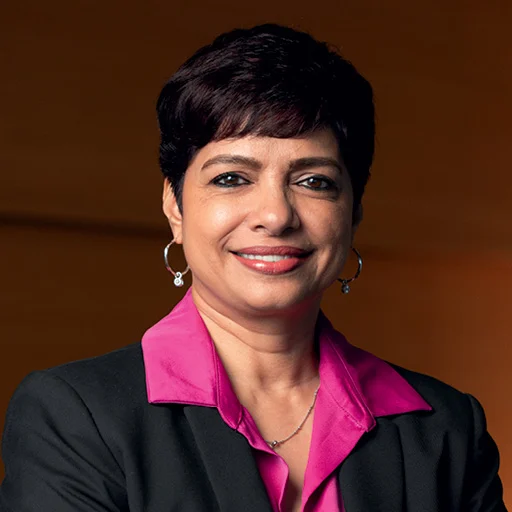Jio Studios goes global: Reliance bets big on India’s Hollywood moment
India’s largest content studio aspires to build global franchises of its titles, such as Stree, Munjya, and Bhediya, amongst others.

In 2024, three Jio Studios films—Laapataa Ladies, Article 370, and Shaitaan—made it to streaming platform, Netflix’s top 10 global charts. Laapataa Ladies, which was watched in over 43 countries, also got nominated for the Oscars. If Indian content has started resonating beyond the diaspora audience across continents, it does speak volumes about its storytelling. Jio Studios, the country’s biggest content studio, is all set to take the next big leap of faith—it aims to become a prominent international studio in the next five years. The intent is to rub shoulders with the likes of Paramount, Walt Disney, Peacock, Lionsgate, and MGM. “It would be a combination of organic and inorganic collaborations,” says Jyoti Deshpande, President (Media and Content Business), Reliance Industries.
Reliance Industries’ businesses are always about scale, and its global entertainment aspirations are going to be no different. “Today, we are nowhere near Hollywood or even Korea. Somebody needs to take control and start. I want to use the Reliance heft to take Indian stories to the world,” says Deshpande.
The plan is to separate India rights and overseas rights, and then get a sales agent in key European markets, in North America, and Australia. “Currently, a digital platform takes away global rights, which limits international distribution country by country. We will then try to work that film from a Berlin or a Cannes, get a sales agent, and sell North America, Germany, France, and other parts of Europe—around 100-135 countries. We will then try to release it theatrically and do deals with streaming services and broadcasters in those markets. If I do this with a set of films, then our stories will start opening up into those markets.”
Doing business at this scale would require a significant appetite for risk, and Deshpande is open to taking bold bets. “Today, we are talking about India to the world. How can you make it happen by doing business the way we are currently doing? One will have to take significant risks, invest in the right stories that can travel, and take on international partners. I will be looking at co-producing some films internationally as well as inviting some international co-producers into my slate.”
Deshpande intends to unleash the power of the IP. She wants to build global franchises of her titles. “We are already building franchises around Stree, Thama, Bhediya, and Munjya. We are also doing Mahaavatar, which is the story of Parasuram. This will be a big budget behemoth, and it will introduce characters,” she explains. By the time Mahaavatar releases—two years from now—Deshpande hopes to get a foreign studio on board. “We don’t necessarily want their money, we want their distribution muscle and disrupt with these stories,” she adds.
Deshpande says there is going to be a sea change in how content companies such as Jio Studios would be valued. “Earlier, we used to get valued in multiples of future cash flows, satellite rights, music rights, etc. Now all those have gone.” Over 30% of Walt Disney Company’s revenues come from selling merchandise. Jio Studios may be well on its way to selling Stree t-shirts or Munjya coffee mugs. After all, Deshpande firmly believes that the only way to disrupt the entertainment market is by being hooked on to pop culture.

